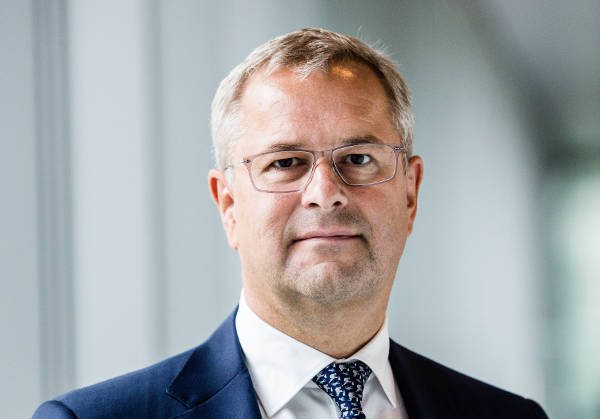
A.P. Moller – Maersk reported a net profit of $8.6 billion in the second quarter driven by the continued “exceptional market conditions” in container shipping and its strategic transformation into an integrated logistics company.
Global demand for logistics services continued to moderate across global supply chains in Q2 2022. Freight rates softened “marginally” during the quarter but remain at historically high levesl as congestion in the supply chain continued.
Global container volumes in the second quarter declined 2.3% year-over-year as geopolitical uncertainty and higher inflation continued to weigh on consumer sentiment and growth expectations.
Nevertheless, Maersk reported strong performance, growing Q2 revenue to $21.7 billion, while EBITDA and EBIT more than doubled to $10.3 billion and $9 billion, respectively, compared to Q2 2021. Free cash flow rose to $6.8 billion.
Maersk’s $8.6 billion profit brings its first half net result to $15.4 billion. As a result, Maersk has upgraded its full year guidance, as we reported yesterday, and also increased the current share buyback program.
“We delivered an exceptionally strong result for the second quarter and consequently recorded the 15th quarter in a row with year-on-year earnings improvements,” said Søren Skou CEO of A.P. Moller – Maersk.
“We are pleased with our performance across the business in first half of 2022, which clearly demonstrates the progress and great work by the entire Maersk team, transforming the company towards becoming a global, integrated logistics company.”
In Maersk’s “Ocean” business, higher freight rates were partly offset by a 7.4% decline in volumes and by higher fuel, handling, and network costs in Q2.
“Although spot rates have softened from their peak earlier in the year, the company continued to sign contracts at rates above previous year levels given strong demand and continuing global supply chain congestion,” Maersk said.
Revenue in Maersk’s “Logistics” business grew 61% mainly due to higher volumes from new customer wins and increased spending from existing customers.
During Q2, Maersk continued to invest in its logistics portfolio, having completed its acquisitions of logistics specialist Pilot Freight Services and global air freight expert Senator International. Maersk further strengthened its air freight offering by launching Maersk Air Cargo.
Maersk’s “Terminals” business grew revenue grew to $1.1 billion, mainly driven by strong import demand in the United States and above market growth in Asia, as well as higher storage income.
“The result was driven by strong contract rates in Ocean, rapid profitable growth in Logistics and continued solid performance in Terminals. Volumes in Ocean were softer as congestion continued and the war in Ukraine weighed on consumer confidence, particularly in Europe. However, in Logistics we grew volumes above the market as our Ocean customers continue to buy into our value proposition, resulting in organic revenue growth of 36pct., notching up the 6th quarter in a row of more than 30pct. organic growth,” added Skou.
On Monday, Maersk lifted its full year guidance by $7 billion, now anticipating full year 2022 EBITDA of around $37 billion, assuming a gradual return to normal in Ocean taking place in the fourth quarter of 2022.
Based on the improved guidance, the Maersk’s Board of Directors has decided to increase the current share buyback program by $500 million annually, from $2.5 billion to $3.0 billiono for the years 2022-2025.
Copyright Ships & Ports Ltd. Permission to use quotations from this article is granted subject to appropriate credit given to www.shipsandports.com.ng as the source.
